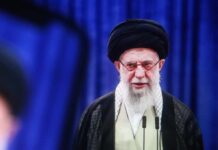
The upcoming peace talks in the United Arab Emirates between Armenia and Azerbaijan could potentially alter the landscape of the long-standing Karabakh conflict.
At a Glance
- Armenia and Azerbaijan will meet for peace talks in the UAE.
- The US expresses hope for swift conflict resolution.
- Azerbaijan’s demands include constitutional amendments from Armenia.
- Over 100,000 ethnic Armenians displaced after Azerbaijan recaptured Karabakh in 2023.
Peace Talks Amidst Tensions
The leaders from Armenia and Azerbaijan will meet in the UAE for pivotal peace talks, having been locked in conflict over the Nagorno-Karabakh region for decades. Tensions flared again after Azerbaijan recaptured the contentious area this year, leading to the displacement of over 100,000 ethnic Armenians.
🇦🇲🇦🇿🇦🇪- Armenia-Azerbaijan peace talks begin in Abu Dhabi, UAE. Armenia's Nikol Pashinyan meets Azerbaijan's Ilham Aliyev. pic.twitter.com/2HqmkN11Ul
— Emeka Gift Official (@EmekaGift100) July 10, 2025
The scheduled meeting in Abu Dhabi carries significant hope for a peaceful resolution, given that previous conflicts have seen massive human rights violations and regional instability. Despite a comprehensive text agreed upon in March this year, negotiations were halted following Azerbaijan’s insistence on new constitutional amendments from Armenia.
Watch: Armenian, Azerbaijani Leaders Meet in UAE
Role of International Pressure
International actors, including the US, France, and the European Council, have expressed optimism about a swift settlement, pressing this agenda since Abdullah’s recapture of the Kharabakh region earlier this year. Secretary of State Marco Rubio believes the peace talks will be a crucial step towards establishing lasting peace.
Sources confirm Azerbaijan has leveraged its victory, demanding constitutional changes from Armenia to formally disregard territorial claims on Karabakh. Armenia acknowledges constitutional revisions are necessary, though reconciliation requires careful diplomatic navigation.
Potential Outcomes and Challenges
The possibility of immediate resolution remains uncertain, with Azerbaijan pushing for larger access, namely a transport corridor through Armenia to connect Nakhchivan. This proposition, seen as leverage, unveils strategic interests and complexities in these discussions.
Previous deals have failed due to increased ceasefire violations post-negotiation drafts, making the road to lasting peace rocky. Future talks will likely address these contentious points to prevent the cyclical nature of conflict witnessed historically between both nations.

























